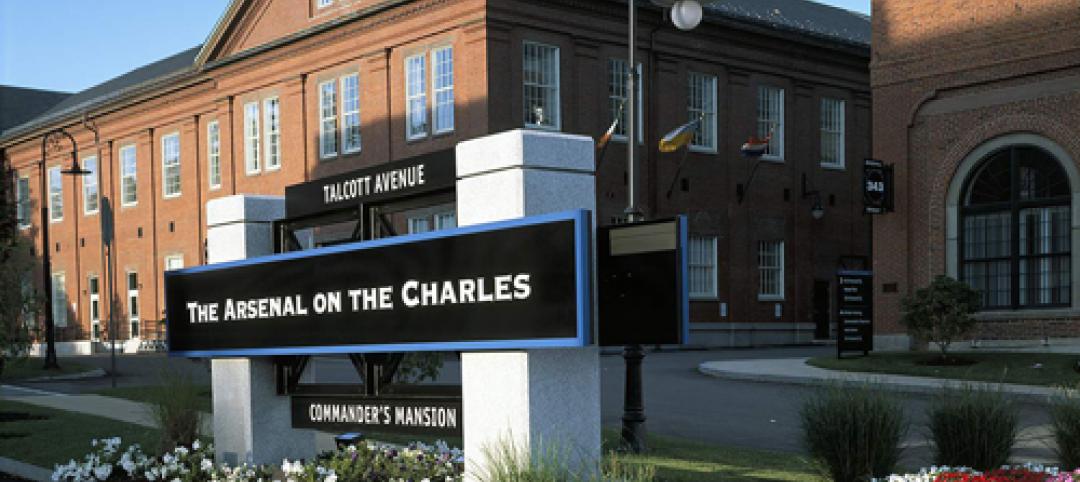According to a study of data from the Building Owners and Managers Association (BOMA) International’s Experience Exchange Report (EER) by Kingsley Associates, the commercial real estate industry’s ongoing focus on energy efficiency has resulted in a downward trend in total operating expenses.
Analysis reveals that properties in the United States reduced total operating expenses from $8.18 to $7.86 per square foot (psf) on average from 2011 to 2012, a difference of $0.32 or 3.9 percent. About two-thirds of these savings were achieved in the utility category, where average expenses fell $0.21—a whopping 9.0 percent—to $2.12 psf, underscoring an industry focus on maximizing building efficiency and smart asset management.
Nearly all building types boasted operating expense savings during 2012. Only corporate facilities saw total operating expenses remain essentially unchanged with a slight 0.5 percent increase. Downtown buildings remained, on average, more expensive to operate than their suburban counterparts, and they also reported a slightly smaller expense savings (4.1 percent versus 6.4 percent for suburban buildings).
As with total operating expenses, the decrease in utility expenses per square foot in 2012 also was broad-based. Private sector office buildings in both downtown and suburban locations observed an identical 9.3 percent reduction, though costs remain higher at downtown locations. Multi-tenanted buildings were able to achieve greater savings than corporate or single-tenanted facilities (9.6 percent versus 3.8 percent), but the trend was the same for both. However, not all property types saw a decline in this area. Utility costs rose 2.7 percent at medical office buildings and 4.2 percent at government-occupied facilities.
In addition to substantial savings on utilities, analysis also revealed that private sector office buildings spent $0.06 (4.0 percent) less per square foot on cleaning in 2012. Cleaning and administrative expenses are essentially tied as the third largest expense categories, behind utilities and repairs/maintenance. Building owners and managers were also able to make modest cuts in security and roads/grounds expenses (a $0.03 decrease in each category), though these categories are small relative to others.
These findings are based on an examination of a specialized control sample of more than 2,000 private sector buildings representing 385 million rentable square feet of U.S. office space that submitted both 2011 and 2012 expense data to the EER database. The sample only includes buildings meeting certain criteria in order to control for the impact of major renovations and changes in occupancy on operating expenses to ensure trends captured are representative of market reality. A complete analysis can be found in the latest issue of The BOMA Magazine.
With detailed income and expense information from more than 5,300 buildings across more than 250 markets, BOMA International’s Experience Exchange Report (EER) is commercial real estate’s premier income and expense benchmarking tool with the largest and most accurate data available in the industry. The EER allows users to conduct multi-year analysis of single markets and select multiple cities to generate state and regional reports. It also offers the capability to search by market, submarket, building size, building type and more for broader analysis. The 2013 Experience Exchange Report is available now at www.bomaeer.com.
About BOMA International
The Building Owners and Managers Association (BOMA) International is a federation of 93 BOMA U.S. associations, BOMA Canada and its 11 regional associations and 13 BOMA international affiliates. Founded in 1907, BOMA represents the owners and managers of all commercial property types, including nearly 10 billion square feet of U.S. office space that supports 3.7 million jobs and contributes $205 billion to the U.S. GDP. Its mission is to advance the interests of the entire commercial real estate industry through advocacy, education, research, standards and information. Find BOMA online at www.boma.org.
About Kingsley Associates
The most successful firms in real estate rely on Kingsley Associates for cutting-edge business intelligence solutions. With a depth and breadth of insight unmatched in the industry, Kingsley Associates brings thought leadership and passionate client service to every engagement. Kingsley Associates is a leader in tenant satisfaction surveys, resident satisfaction surveys, client perception studies, strategic consulting and operations benchmarking. To learn more, please visit our website at www.kingsleyassociates.com or our blog at www.kingsleyinsight.com.
Related Stories
| Sep 4, 2013
Smart building technology: Talking results at the BUILDINGChicago/ Greening the Heartland show
Recent advancements in technology are allowing owners to connect with facilities as never before, leveraging existing automation systems to achieve cost-effective energy improvements. This BUILDINGChicago presentation will feature Procter & Gamble’s smart building management program.
| Sep 4, 2013
Twenty-nine-acre brick building complex in Watertown, Mass., to be renovated as innovation hub
The owner of a 29-acre cluster of brick buildings in Watertown, Mass., wants to reinvent the site as a 21st-century innovation hub.
| Sep 4, 2013
Last chance to pre-register for BUILDINGChicago/Greening the Heartland Conference at 20% savings
Attendees of the BUILDINGChicago/Greening the Heartland Expo and Conference can still save 20% off the at-site registration fee by registering online in these final days before the event opens on September 9 and concludes on September 11.
| Sep 3, 2013
'School in a box' project will place school in San Diego public library
Thinking outside the box, LPA Inc. is designing a school inside a box. With an emphasis on three E’s—Engage, Educate, and Empower—e3 Civic High is now being constructed on the sixth and seventh floors of a public library in downtown San Diego. Library patrons will be able to see into the school via glass elevators, but will not have physical access to the school.
| Sep 3, 2013
Delinquency rate for commercial real estate loans at lowest level in three years
The delinquency rate for US commercial real estate loans in CMBS dropped for the third straight month to 8.38%. This represents a 10-basis-point drop since July's reading and a 175-basis-point improvement from a year ago.
| Sep 3, 2013
Grand Junction, Colo., courthouse aims to be first net-zero building on National Register of Historic Places
After a two year renovation, the 95-year oldWayne S. Aspinall Federal Building and Courthouse in Grand Junction, Colo., is being evaluated for LEED Platinum status and may become the National Register of Historic Places’ first net-zero-energy building.
| Aug 30, 2013
Modular classrooms gaining strength with school boards
With budget, space needs, and speed-to-market pressures bearing down on school districts, modular classroom assemblies are often a go-to solution.
| Aug 30, 2013
Local Government Report [2013 Giants 300 Report]
Building Design+Construction's rankings of the nation's largest local government design and construction firms, as reported in the 2013 Giants 300 Report.
| Aug 30, 2013
A new approach to post-occupancy evaluations
As a growing number of healthcare institutions become more customer-focused, post-occupancy evaluations (POE) are playing a bigger role in new construction and renovation projects. Advocate Health Care is among the healthcare organizations to institute a detailed post-occupancy assessment process for its projects.
| Aug 30, 2013
State Government Report [2013 Giants 300 Report]
Stantec, Jacobs, PCL Construction among nation's top state government design and construction firms, according to BD+C's 2013 Giants 300 Report.




















